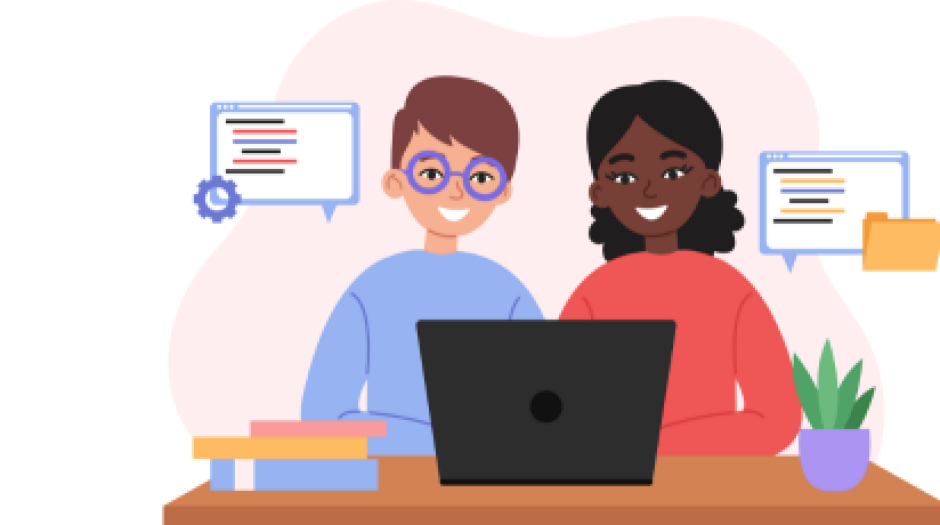UN Women is seeking applications to engage the services of local NGOs to implement activities across the Outcome in the target districts of Dedza, Zomba, Balaka, Mzimba, Blantyre, Dowa and Lilongwe but starting with a few districts in the first year.
The successful partners should have an existing presence in the target districts and programming expertise in Education, Gender, Community Development and Women's Economic Empowerment and Livelihoods.
UN Women Malawi, with funding from the Irish Embassy, strives to use technology to increase education, innovation, and awareness about gender equality and economically empower youth populations even in remote regions with inclusive and participatory strategies to overcome the digital divide. The Malawi Girls Can Code Too project will enable more gender-balanced access to technology, which has positive potential for economic development for women, girls and the country at large. Specifically, the project will provide a unique opportunity for girls to acquire knowledge on entrepreneurship, coding and digital literacy which will stimulate them to become ICT Professionals; increase the use of mobile phones and the internet in accessing information, for example, on gender, entrepreneurship, and soft skills, GBV and other professional growth services. It will also enhance the monitoring and reporting of harassment and other forms of violence experienced by girls through online platforms.
Funding Information
- The budget range for this proposal should be MWK23,000,000 to MWK35,000,000 per District and prioritised for Balaka, Dowa and Mzimba Districts.
Timeframe
- Start date and end date for completion of required services/results
- December 2023 to July 2024.
Outcomes
- The specific outcomes are:
- Outcome: More gender-balanced digital access and technology adoption for both rural and urban girls and young women in Malawi by 2026.
- Percentage of girls enrolled in ICT (participate in technology and innovation).
- Percentage of people accessing digital technology (by sex, type of digital technology).
- Output 1: Girls acquire knowledge and skills on coding and digital literacy which will stimulate them to become ICT Professionals.
- Establish 20 eLearning hubs hosted in community day secondary schools annually for girls in rural areas.
- Conduct four 3-month training sessions on ICT literacy in e-learning hubs annually.
- Conduct four regional Bootcamps for fifty participants, totaling two hundred women per year for girls and 1 national bootcamp for young women in urban areas.
- Develop a training manual covering ICT, Coding, and Leadership (adopted from the AGCCI to fit the Malawi context).
- Conduct a TOT for young graduates who will be the main trainers for the programme.
- Output 2: Increased access to information on ICT and other services (including GBV, SRHR, employment), and for professional growth.
- Purchase reliable off-grid solar systems for powering 12 eLearning hubs.
- Conduct TOTs for young people to be able to maintain the equipment and manage the eLearning hubs as a way of creating local jobs.
- Sensitize girls, the community at large and duty bearers on maintenance and management of eLearning hubs and their benefit to the ecological system they live in.
- Output 3: Girls who have participated in the Coding Camps engage in opportunities in the private sector, tech clubs, tech companies and CSOs working within ICT and Coding sectors.
- Facilitate engagement meetings with the ICT private sector and other stakeholders.
- Establish networks/user-friendly e-platforms to ensure girls and women stay connected and can develop together and support each other across borders, promoting regional integration.
- Train and establish a pool of young ICT and Coding experts/mentors to support the development of code and applications.
- Sensitize the media, the public and other stakeholders on the MGCC2 for advocacy and national ownership.
- Output 1: Girls acquire knowledge and skills on coding and digital literacy which will stimulate them to become ICT Professionals.
Activities
- Output 1:
- Sensitising the community about the project
- Sensitising the community about creation of e-learning hubs
- Mobilising and boys and men to support the project beneficiaries.
- Identifying beneficiaries to be trained on ICT Literacy
- Mobilisation and selection of girls to participate in bootcamps.
- Following up on the girls that participated in the bootcamps to assess and support them on utilisation of resources.
- Support with beneficiary registration (updating beneficiary details into database).
- Output 2:
- Domesticate the media Campaigns to encourage more girls to participate in ICT and other STEM related activities.
- Provision of post training support including mentorship sessions.
- Provide soft skills trainings (life skills training sessions).
- Promote community ownership and security of the project equipment placed in the communities.
- Organising community open days or girls to showcase skills gained.
- Organising radio programs to advocate for positive social change around programmatic issues (WEE-EVAW-GBG-DRR) through community radio stations.
- Identify and work with community influencers (change agents) to advocate for gender equality and participation of girls and women in ICT.
- Output 3:
- Facilitating linkages with private sector including organising district level interface meetings between private sector and e-learning hubs.
Competencies
- Technical/functional competencies required
- The CSO/NGO should have the following experience.
- Proven and demonstrable relevant experience of not less than 5 years, including demonstrable experience in community mobilisation, promoting girls' education, gender, youth empowerment, and organizing or facilitating boot camps in different fields.
- Experience in gender equality and livelihoods programming, life/soft skills training, and youth employment programming.
- Those with ICT programming experience for primary or secondary schools will have an added advantage.
- Demonstrated (previous) experience in carrying out similar projects working with universities and girls from community members.
- Current presence in the operational areas in the named districts is strongly preferred.
- Demonstrable experience in safeguarding and or Grievance and feedback mechanism, preferred.
- Understanding of UN, including development issues
- Flexible and ability to timely respond to changes to the proposal as part of the review and feedback process.
- The CSO/NGO should have the following experience.
For more information, visit UN Women.


_large.png)
_large.png)
_large.png)